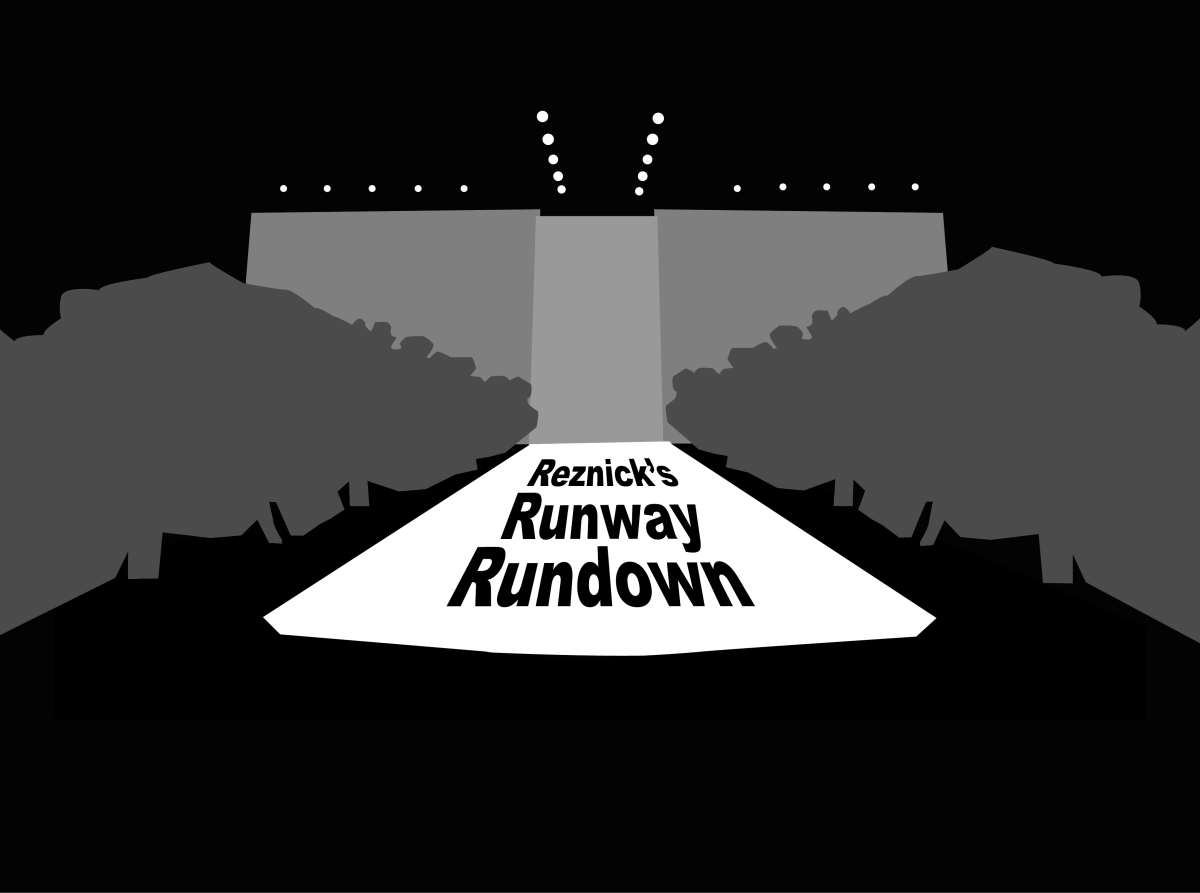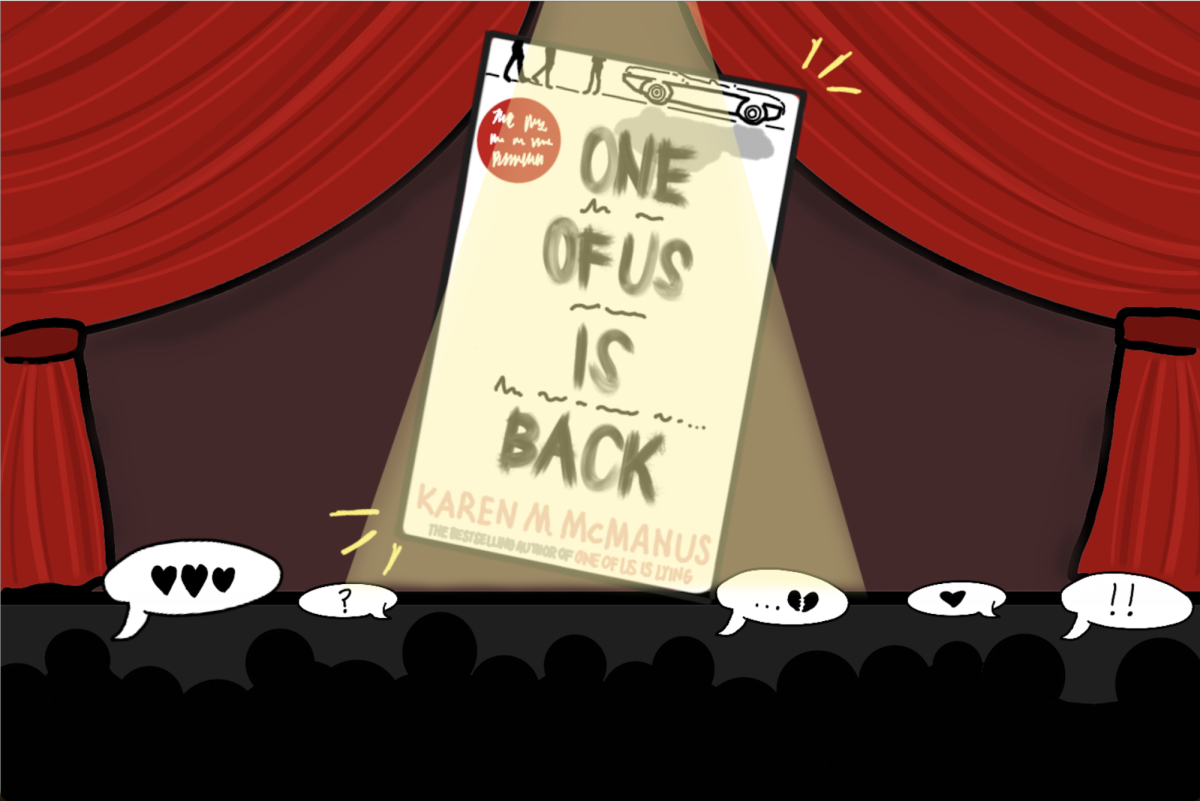When the curtains open, the quiet that spreads over the audience represents the zenith of hard work from the cues and stage direction to the actors’ careful enunciation.
The road to achieving this is not a quick process. In fact, the extensive preparation for the November production starts in the summer, when the play is selected.
The much anticipated decision of which play or musical students will perform is always made by one man: Performing Arts Teacher and director Buck Herron. But he never takes the decision lightly. Having made the decision 35 times, experience is certainly not an issue.
When Herron chooses the play, there are two critical factors that ultimately shape the decision he will make. “I realize that this is a very sophisticated audience we have here [at ASL], so I feel that they appreciate innovative work. At the same time, they are also extremely bright,” he said. “So there is part of me that thinks to myself, ‘well, how can we satisfy that unusual bit of curiosity about theater and produce kind of an unusual work?’”
While the the audience always guides Herron’s decision, he also considers his cast size. “Not all great drama was written for plays of 20 people or more,” he said. There are a great number of plays that have a more limited cast size, however, in order to include as many members of the student body as possible, Herron typically chooses a play with more roles to give out.
Variety is also something Herron describes as of the utmost importance. Herron reminds himself, “If they have had the experience of seeing some sort of comedic farce last year, then I better go for something different. For example, we had the seriousness of the Holocaust play this fall,’” Herron said. Indeed, the upcoming play, “You Can’t Take It With You”, will be of a more comedic nature than “A Light in the Darkness”.
After the play is selected, the next step for directors, like Herron, is to host auditions.
As Alex Harrington (’17), who directed “The Real Me”, found out this winter, auditions can often prove to be one of the most difficult tasks a director has to deal with. When Harrington watched the play for the first time, her inclination was to give certain roles to her friends.
Breaking out of this mindset proved one of her greatest challenges. “Some of [my friends] ended up being [the characters they wanted] and some of them didn’t, because ultimately my decision was just what I saw when they read those lines,” Harrington said.
Also an actress, Harrington discovered that the mindset required to be a director is taxing, not just during auditions, but throughout the entire process. “It’s different because you have to be very concentrated on your goal. Your goal is making a show that people want to come and see,” Harrington said.
Both Harrington and Herron find they share many common responsibilities as directors. Amongst a whole host of other things, Herron sees himself at the helm of the course the play needs to take. When Herron is directing his play, he cannot just direct it; he has think about how the audience is going to interpret it. “I have to keep my pulse on the audience, as if I am the audience and were watching it because that is key, they are expressing a story to the audience,” Herron said.
Unlike the audience, though, Harrington thinks that a director has “to bring leadership [and] concentration, which is really difficult. Especially after a day of school, they have to bring a work ethic.”
Once roles have been determined, the world of an actor starts to come to life. Rowan Yearley (’16), who has participated in more than seven productions in his three years of high school, takes getting into character very seriously.
Yearley goes through the process of becoming his character so when he delivers his lines, he is not simply reading the text from the script. “[I] have to figure out what the intention behind my lines is, like what you mean when you’re saying [something] and how much it means to you, or what you are trying to convey when you say that,” he said.
In fact, when the opening night approaches, even when Yearley is not in character, his moods are sometimes different. “Last year with ‘Avenue Q’, my friend did note an increase in flamboyance while I played Rod. So I think if you do really get into a character it can lead into your everyday experience,” he said.
On top of getting into character, the necessary preparations Herron puts his actors through are taxing for even the most dedicated. “We would rehearse from 3:20 p.m. to maybe 6:00 p.m. and for the leads that would perhaps be all the way from September through November, but to also figure that they are spending a lot of time out of class getting their lines down,” he said.
While the commitments of an actor can often prove difficult, Harrington experienced a frustration she never would have anticipated when she first decided to put on a show as a director. Harrington often entered what she describes as “director mode”, which is “when you know something has to get done and you are not going to let up until it is done,” she said. While Harrington admits sometimes going into this mindset can mean taking on a hostile character, she always does what is best for the play.
On Harrington’s opening night, one of her main actresses was too ill to perform. She maintained, though, that “the show must go on.” So instead, one of her friends stepped in and read the ill actress’ lines off a script.
Even though problems do happen, Yearley cites that more often than not, the plays he has been a part of run smoothly. While most would find acting on stage in front of crowds, that sometimes exceed hundreds, paralyzing, it’s second nature to the actors and actresses who have dedicated up to three months to learning their lines. “It’s terrifying, but it’s also a rush… you just have to be in the moment and do what you have to in the show,” Yearley said. “It’s hard to describe, but it is a great feeling and afterwards you are dead and you are exhausted and you feel really accomplished.”






